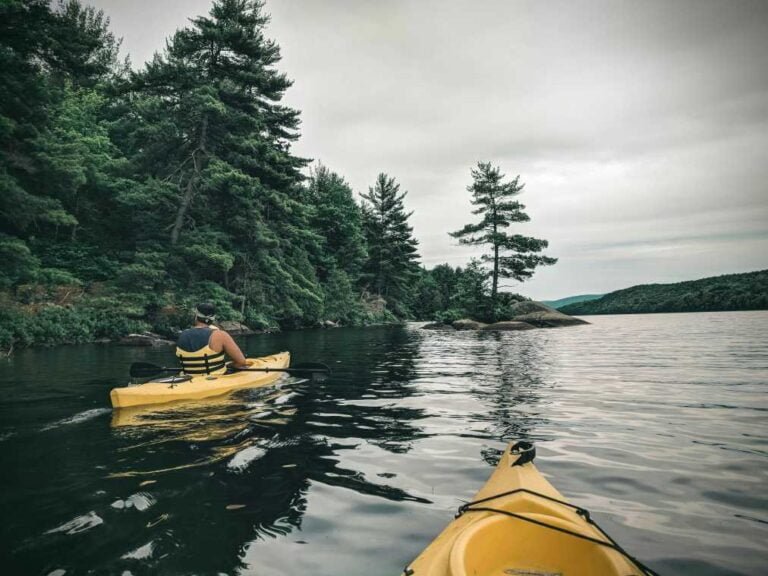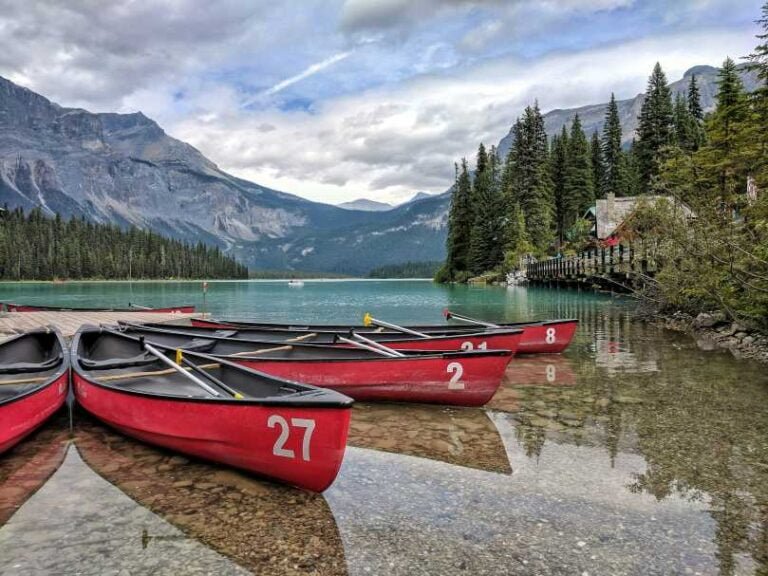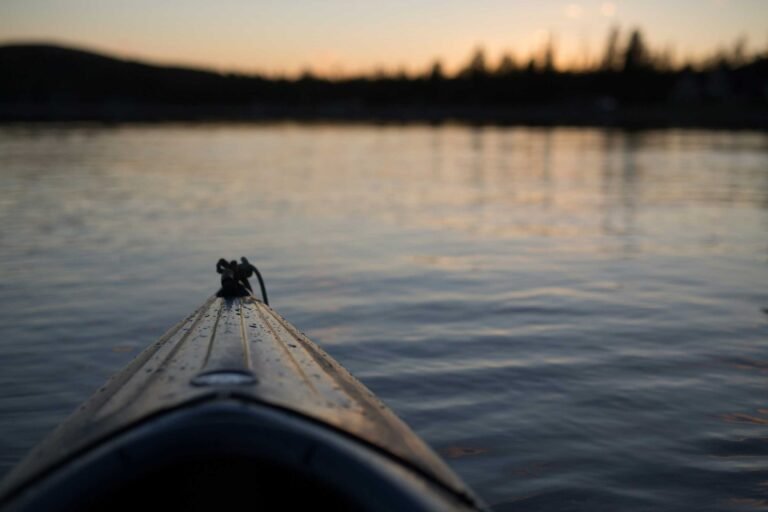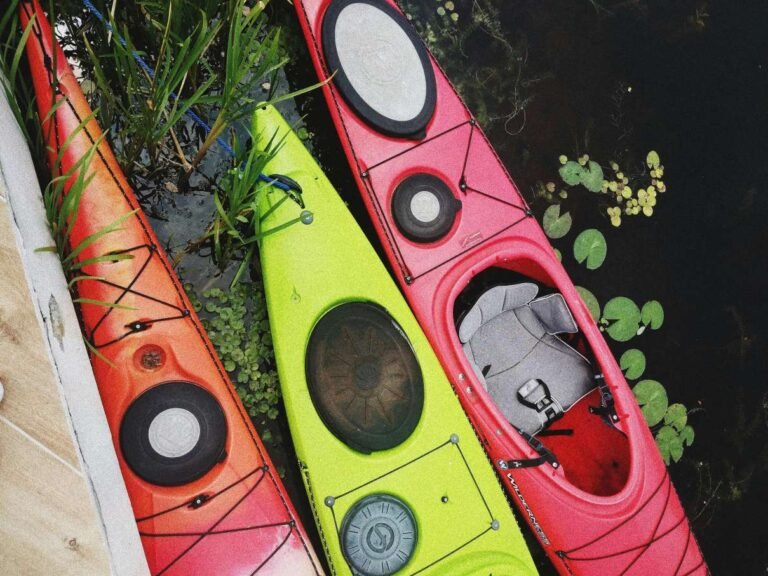
Can you duck hunt from a kayak? Duck hunting requires not only patience and ability but also knowledge of the surroundings and the behavior of ducks. Hunting has long been accomplished using a variety of tools, including boats, decoys, and blinds. But in the last few years, duck hunting from a kayak has become a popular technique that combines the excitement of the hunt with the peace of mind of paddling across calm waterways. This page examines the practicalities, methods, benefits, and difficulties of duck hunting from a kayak.
Can you duck hunt from a kayak?

Can you duck hunt from a kayak? Several special benefits above conventional techniques are available when kayak hunting. First off, kayak’s mobility and stealth let hunters get to places that are hard to get to otherwise. Now days, ducks in their native environment can be found in shallow waterways, narrow streams, and thick vegetation. Second, because they are low-profile, kayaks lessen the possibility of frightening nervous ducks. To further improve the whole experience, the mix of hunting and paddling encourages a closer relationship with nature. Subscribe for more blog posts like this.
Things to Look for in a Hunting Kayak

Duck hunting trips that go well depend on choosing the appropriate kayak. Considerations are several and include:
Stability
Can you hunt duck from a kayak? In a hunting kayak, Stability is critical. You have to be able to move and fire without worrying about falling over. Seek hull shaped flat kayaks. they provide the best primary stability. If you are looking for a kayak which will be good at maneuverability, then go for a shorter one, but it will compromise the speed and tracking. Another essential thing for better balance and stability is proper weight distribution of the equipment on the kayak.
These are some practical tips for better stability:
• Practice movements as well as balancing the kayak in calm, shallow water.
• Add stabilizers for even better stability.
• Seek designs that are made for hunting.
Camouflage
It can make a big impact if your kayak seems like it belongs there. Choose neutral colors or camouflage patterns that reflect the surroundings where you plan to seek. Avoid making noise as it is a part of camouflage. Tightening your gear and accessories will help being quite or get quite storage options such as; bungee cords.
Storage
Hunting calls for tools like guns, ammunition, decoys, and maybe a retriever. Make sure your kayak has enough compartments or storage area to maintain your equipment arranged and easily accessible.
Comfort
Extended periods of time on the water call for a cozy seat and movable footrests. Your hunting performance will increase and tiredness can be reduced with ergonomic designs.
Weight Capacity
When selecting a kayak, take your equipment and your own weight into account. Stability and safety may be jeopardised by overloading.
Essential Equipment
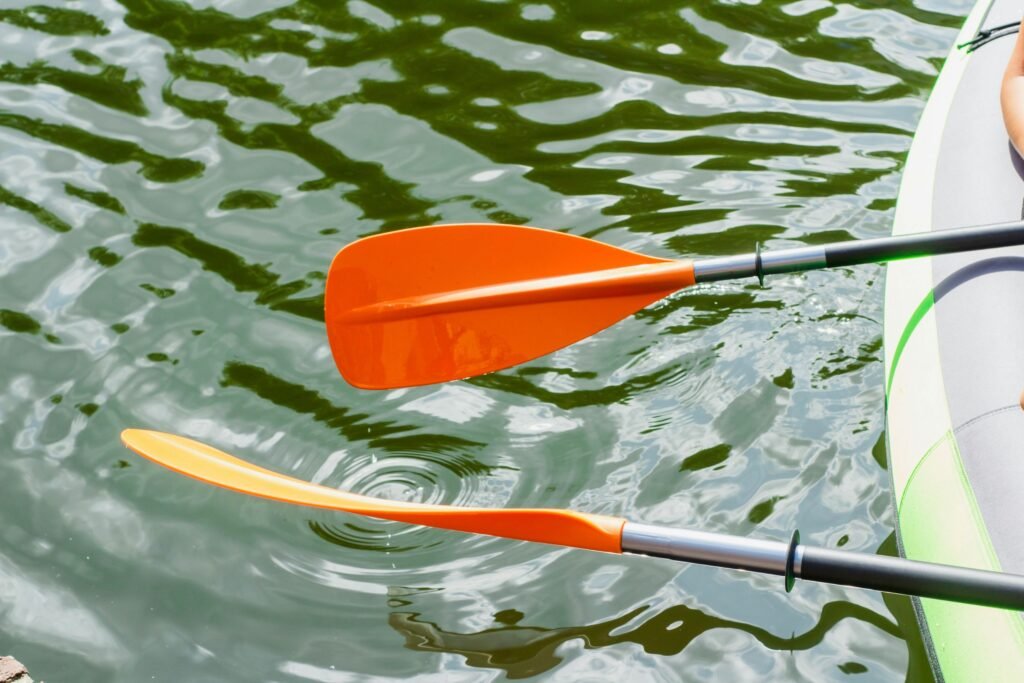
Choosing your kayak is only the first step; the next is to outfit it properly. The following is a list of essentials for a kayak duck hunt gone right:
Paddle
Effective navigation requires a sturdy, lightweight paddle. Think about getting a paddle leash so you won’t lose it in the water. Seek durability as it has to survive rough conditions and impacts.
Life Jacket
Our first concern should always be safety. Essential is a life jacket made for paddling that is both comfortable and non-restrictive. Look for pockets which will provide enough room for helpful accessories. Also go for a camouflage design as it is a must have feature for hunting.
Weapon
The usual weapon for duck hunting is a shotgun. Make sure it is securely fastened, when not in use, in a watertight case or mounted rack. Make sure your weapon functions properly and maintained in a safe spot.
Decoys
Good decoys draw ducks to your hunting location. From your kayak, they ought to be simple to deploy. There are varieties of decoys, use different species, it will draw the duck faster. Go for a bright color so that, it will be visible to the ducks from range. Apply some natural motion to the decoys, it will seem to be more real to the ducks.
Calls
Duck calls can draw ducks in by sounding like them. Before leaving, get practice utilizing them well. Some pro tips would be:
• Your calls should mimic the natural duck sounds.
• Carry different types of calls such as; quacks, whistles, feeding calls etc.
• Use a strategy for mimicking the natural behavior of the ducks by timing your calls appropriately.
Blind or Cover
You may keep ducks and your kayak hidden using portable blinds or covers. These can be purchased especially for kayak hunting or fashioned from natural resources.
Consider these things before getting a blind or cover:
• Make sure your cover is easy to carry and set up.
• Make sure it matches with the surroundings.
• It has to be light in weight because you might have to wear it for a long time.
Retrieval System
A dog that has been taught to retrieve ducks can be quite useful. Should you hunt without a dog, think about using a little net or a telescoping retrieving pole.
Navigation Tools
To navigate uncharted seas, a compass and map or a GPS device are necessary. A few more things would be helpful such as; Depth finder, Headlamp and Battery backups.
Hunting Techniques

How can you duck hunt from a kayak? It will need time and practice to become an expert kayak duck hunter. Following are some pointers to increase your chances of success:
Scouting
Find out where ducks are flying, resting, and feeding in the region before your hunt. Seek for indicators include disturbances to the water, droppings, and feathers. Carry a binocular to observe areas from distance.
Approach
Hide your approach using the natural cover of trees, bushes, and reeds. Ducks should not be alarmed by your slow, steady paddling.
Some pro tips would be:
• If you’re hunting ducks in a sunny day, try keeping the sun at your back.
• Stay low so that you won’t be visible.
• And the must have is patience.
Staging
Try to get upwind of the ducks, as they usually land into the wind. Your call sounds and decoy will also be carried more toward them by this.
Decoy Setup
Group your decoys to look natural. To make it look natural, there are a few things to keep in mind:
• Keep the decoys spread providing the ducks some space to land into.
• Also make you sure the anchor is heavy enough to keep the decoys stable in different wind conditions
Ducks can readily settle amid the decoys if there is an open landing area offered.
Calling
Make few, relaxing calls that resemble those of ducks. Ducks might become wary of overcalling.
Some pro tips would be:
• Start with soft calls and when ducks start to appear make it aggressive.
• There should be periodic stops between the calls.
• As the ducks start to reacting, adjust your calls.
Shooting
Be sure you are steady and have a clean line of sight before firing. Think about how the ducks and your kayak will move as well. Spend enough time on practicing shooting and gather enough experience of it.
Safety

Duck hunting from a kayak requires utmost safety. These are some fundamental safety advices:
Weather Awareness
Before leaving, look up the weather. You want to avoid duck hunting in thunderstorms and strong winds. Look for a good temperature to go duck hunting. You must avoid super cold weather conditions.
Water Conditions
Be conscious of the currents, water levels, and other risks such submerged rocks or logs.
Some important things to consider:
• The water level for duck hunting should not be shallow as it might limit your navigation.
• Look after waves which will make your paddling tougher.
• Check local conditions when it’s ice.
Communication
For emergency contact, carry a VHF radio or a waterproof cell phone. Keep emergency contacts of responders such as; your family or any local. Continuously send updates to your responder according to the changes of your location while hunting.
First Aid
Know the fundamental first aid techniques and carry a little first aid equipment. Carry a first aid container which is waterproof. When the water is cold, do not go hunting without knowing the prevention of hypothermia. If possible, then go with a partner.
Float Plan
Let someone know where you are hunting and when you anticipate coming back.
Hydration and Nutrition
Make sure you enough food and drink to keep yourself hydrated and alert all through the hunt. Try carrying high-energy food as well as snacks. Keep yourself energized with electrolytes when hunting for an extended period of time.
Environmental and Moral Issues

Good hunting methods guarantee the survival of duck populations and the protection of natural environments. Following rules should be followed:
Rules
Learn the seasons, bag limitations, and local hunting rules. Get the licenses and permits required.
There are some moral issues to consider:
• Avoid hunting when under the influence of alcohol or drugs.
• Do not pollute the environment.
• Use non-toxic shots.
Respect Wildlife
Keep your distance from other animals and regard their habitats. Avoid disturbing the wildlife and non-target species.
Leave No Trace
your share of the cleanup and dispose of any trash appropriately. Hold onto the natural beauty of the places you hunt. The most important things to note here:
• Pack out all your trash such as; shotgun shells, food wrappers etc.
• Leave your findings such as; nest, vegetation, archaeological artifacts etc.
• Aware of campfire impact, use portable stove for cooking instead.
Ethical Shot
To guarantee a swift and merciless death, use only ethical shots. Ducks that are out of range should not be shot at. The ideal range of shooting is considered 20-40 yards for waterfowl hunting. Try shooting on the head or upper body to avoid resulting in a wounded bird.
Dog Training
Make sure your dog is always under control and well-trained if you use one. There are some must have sectors of training that your dog must be trained in which are:
• Boat training.
• Blind retrieves.
• Waterfowl scent training.
Hunting Challenges

Can you duck hunt from a kayak? Kayak duck hunting has various advantages but also some difficulties:
Weather Conditions
Bad weather can have an impact on stability and safety particularly so for kayaks.
Physical Demands
Duck retrieving, decoy setup, and paddling can be tremendously taxing. Verify your level of physical health. Duck hunting requires sitting for a long time so, building endurance is essential. Moreover, the essential gear and accessories requires heavy lifting as well as paddling. Lastly, being physical fit is very important in case of emergency.
Limited Space
Kayaks are small, hence you can only carry a few gear. Sort important things first and pack light.
Shooting Stability
It takes experience and expertise to shoot from a kayak while keeping your balance. Always watch your posture and the steadiness of the kayak.
Retrieving downed ducks can be difficult without a retriever. Aid in retrieving with a pole or net.
